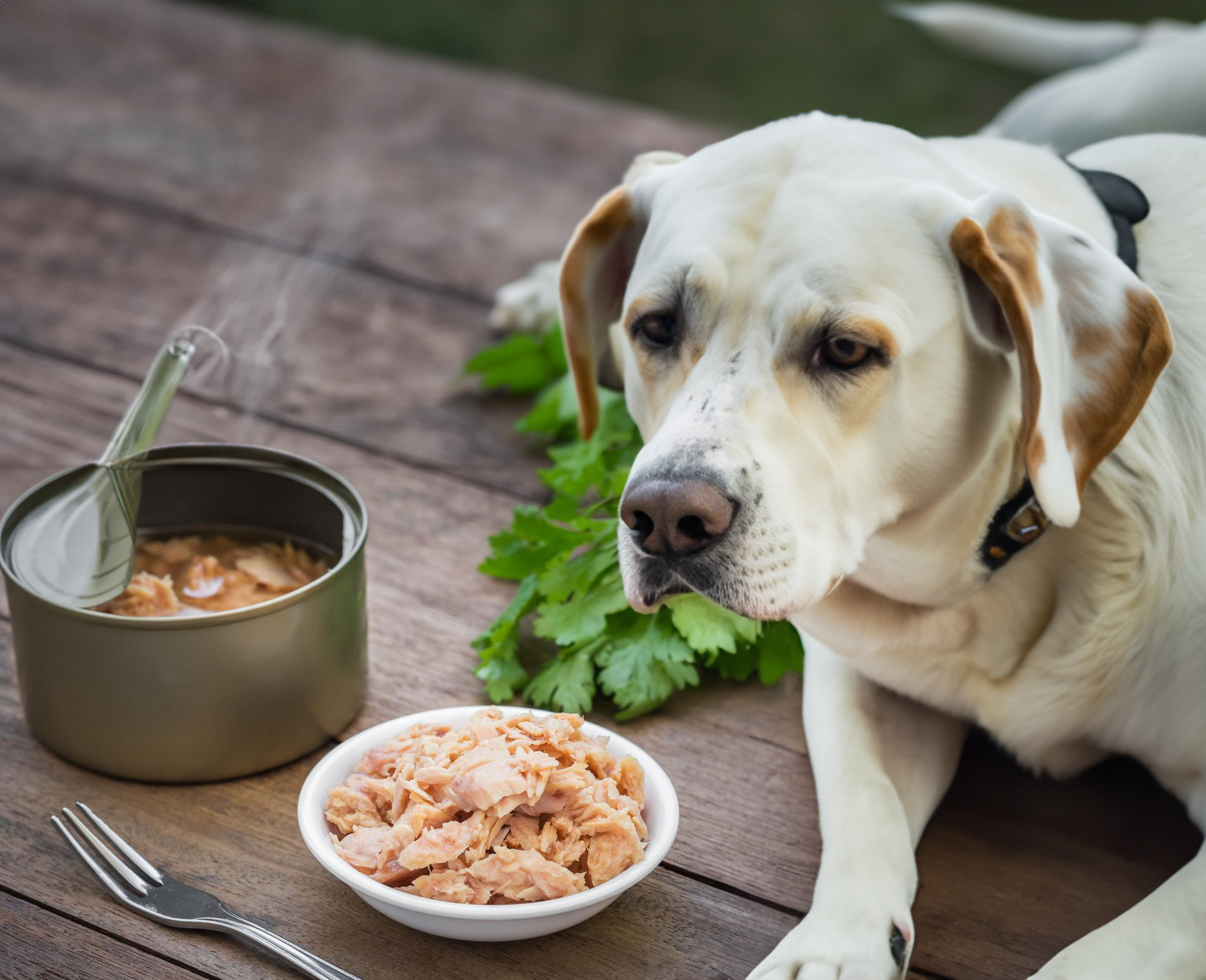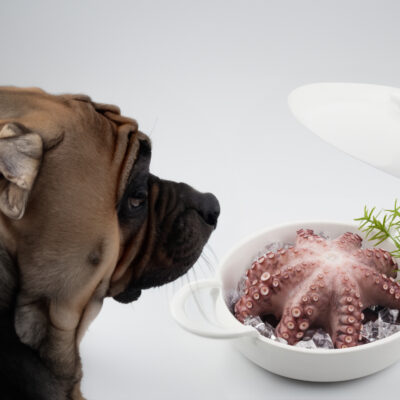Can dogs eat canned tuna? It’s a common question among pet owners who are looking for ways to add variety to their furry friend’s diet. It’s understandable why many people would be interested in adding canned tuna to their dog’s diet – after all, it’s a convenient and affordable option. But before you start feeding your pup canned tuna, it’s important to understand the potential risks associated with it. In this blog post, we’ll take a look at whether or not you should be adding canned tuna to your dog’s diet – the answer might surprise you!
What You Need to Know about Dogs Eating Canned Tuna
Feeding dogs canned tuna can seem like a great idea. After all, it’s a convenient and affordable option that can add variety to your furry friend’s diet. However, before you start serving up a bowl of tuna for your pup, there are a few things you need to know.
Firstly, not all canned tuna is created equal. Some varieties contain high levels of mercury, which can be toxic to dogs. It’s important to choose low-mercury options and avoid any flavored varieties that may contain harmful additives like onion or garlic.
Secondly, while tuna is a good source of protein, it shouldn’t be the mainstay of your dog’s diet. Dogs require a balanced diet that includes a variety of nutrients, and relying too heavily on canned tuna can lead to nutritional imbalances.
Additionally, some dogs may be allergic to fish. If you notice any signs of an allergic reaction, such as itching, redness, or digestive issues, it’s best to consult your veterinarian before continuing to feed your dog canned tuna.
Potential Benefits of Adding Canned Tuna to Your Dog’s Diet
While there are some potential risks associated with feeding dogs canned tuna, there are also some potential benefits that may make it worth considering as an occasional addition to their diet.
One of the main benefits of adding canned tuna to your dog’s diet is its high protein content. Protein is an essential nutrient for dogs as it helps build and repair tissues, supports a healthy immune system, and provides energy. Tuna is a great source of lean protein, making it a valuable addition to your dog’s diet, especially if they have specific dietary needs, such as a high-protein diet for athletic or working dogs.
In addition to protein, canned tuna also contains essential omega-3 fatty acids. These fatty acids play a crucial role in supporting a healthy coat, reducing inflammation, and promoting brain health in dogs. Omega-3 fatty acids are particularly beneficial for dogs with skin allergies or joint issues. However, it’s important to note that while canned tuna does contain omega-3 fatty acids, the levels may not be as high as those found in fatty fish like salmon or mackerel.
Another potential benefit of adding canned tuna to your dog’s diet is that it can serve as a tasty and appealing treat or food topper. Some dogs may find the taste and texture of canned tuna very enticing, making it a useful tool for training, behavior modification, or encouraging picky eaters to finish their meals. Adding a small amount of canned tuna to your dog’s regular food can add flavor and variety, making mealtime more enjoyable for your furry friend.
Overall, while there are some potential benefits to adding canned tuna to your dog’s diet, it’s important to do so in moderation and with caution. As always, it’s best to consult with your veterinarian before making any significant changes to your dog’s diet to ensure that you are meeting their nutritional needs and avoiding any potential risks.
Potential Risks of Feeding Dogs Canned Tuna
Feeding your dog canned tuna may seem like a tempting option, but it’s important to be aware of the potential risks involved. One of the main concerns is the mercury content in certain types of canned tuna. Mercury is a toxic substance that can build up in your dog’s system over time and cause serious health issues. It can affect the nervous system, leading to symptoms such as tremors, weakness, and even seizures.
Another risk to consider is the presence of harmful additives in flavored varieties of canned tuna. Some of these additives, like onion and garlic, can be toxic to dogs and cause gastrointestinal upset or even damage to red blood cells. It’s crucial to read the labels carefully and choose plain, low-mercury canned tuna without any added ingredients.
Furthermore, feeding your dog too much canned tuna can lead to nutritional imbalances. While it is a good source of protein, dogs require a well-rounded diet that includes a variety of nutrients. Over-reliance on canned tuna can result in deficiencies in essential vitamins and minerals, leading to health issues over time.
Lastly, some dogs may be allergic to fish, including tuna. If your dog exhibits any signs of an allergic reaction, such as itching, swelling, or digestive problems, it’s important to discontinue feeding them canned tuna and consult with your veterinarian.
Guidelines for Safely Feeding Dogs Canned Tuna
Feeding your dog canned tuna can be a tasty and nutritious addition to their diet, but it’s important to follow some guidelines to ensure their safety and well-being. Here are some tips for safely feeding your furry friend canned tuna:
- Choose the right type: Opt for low-mercury options of canned tuna and avoid flavored varieties that may contain harmful additives like onion or garlic. Read the labels carefully to make sure you’re selecting a plain and safe option.
Moderation is key: While canned tuna can be beneficial for your dog, it should not be the mainstay of their diet. Dogs require a balanced diet that includes a variety of nutrients. Limit the amount of canned tuna you feed your dog and make sure it’s just a small part of their overall meals.
Serve it as a treat or topper: Canned tuna can be a delicious and enticing treat for your dog. Instead of feeding it as a main course, use it sparingly as a reward during training or as a food topper to add flavor and variety to their regular meals.
Monitor for allergic reactions: Some dogs may be allergic to fish, including tuna. Watch out for signs of allergic reactions such as itching, swelling, or digestive issues. If you notice any of these symptoms, stop feeding your dog canned tuna and consult with your veterinarian.
By following these guidelines, you can safely incorporate canned tuna into your dog’s diet and provide them with a tasty and nutritious treat. Remember, always consult with your veterinarian before making any significant changes to your dog’s diet to ensure their specific needs are met.
Alternative Protein Sources for Your Dog’s Diet
Finding alternative protein sources for your dog’s diet can be a great way to add variety and ensure they’re getting a well-rounded nutritional profile. While canned tuna can be a good option, it shouldn’t be the sole source of protein for your furry friend. Luckily, there are plenty of other protein-rich foods you can incorporate into their meals.
One popular alternative protein source for dogs is lean meats such as chicken, turkey, or beef. These meats provide essential amino acids that help support muscle development and overall health. It’s important to remove any bones, skin, or excess fat before feeding them to your dog to avoid any potential digestive issues.
Another option is eggs, which are not only high in protein but also rich in vitamins and minerals. Cooked eggs can be a great addition to your dog’s diet, whether they’re scrambled, hard-boiled, or lightly cooked. Just make sure to avoid using any seasonings or additives that may be harmful to dogs.
If your dog is sensitive to meat or you’re looking for plant-based alternatives, there are also options available. Legumes such as lentils, chickpeas, and peas can provide a good amount of protein and fiber. You can incorporate these into your dog’s meals by cooking them and mixing them with their regular food.
In addition to meat and plant-based options, there are also commercial dog foods available that are specifically formulated to provide complete and balanced nutrition for dogs. These foods often include a combination of different protein sources such as chicken, beef, or fish, along with other essential nutrients.
When choosing alternative protein sources for your dog’s diet, it’s important to consider their individual needs and any dietary restrictions they may have. Consulting with your veterinarian can help you determine the best options and ensure that your dog is getting all the nutrients they need for optimal health.










